
We kindly inform you that, as long as the subject affiliation of our 300.000+ articles is in progress, you might get unsufficient or no results on your third level or second level search. In this case, please broaden your search criteria.


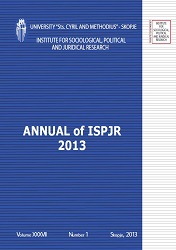


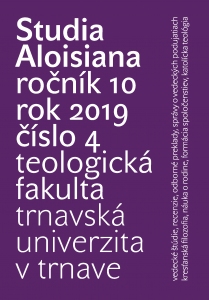
Concept of fully-actualised personality developed in humanistic psychology indicates evolving of relational dimension of personality. In this conceptual context it is possible to consider enhancing of relational qualities of husbands as hypothetical factor of marital satisfaction. Based on aforementioned framework, study is firstly presenting analysis of theoretical and conceptual basis for identification of personality factors in marital relationship. Secondly, study presents empirical research aiming to test hypothetical correlation between personality type of husbands and subjectively experienced satisfaction with marital relationship.
More...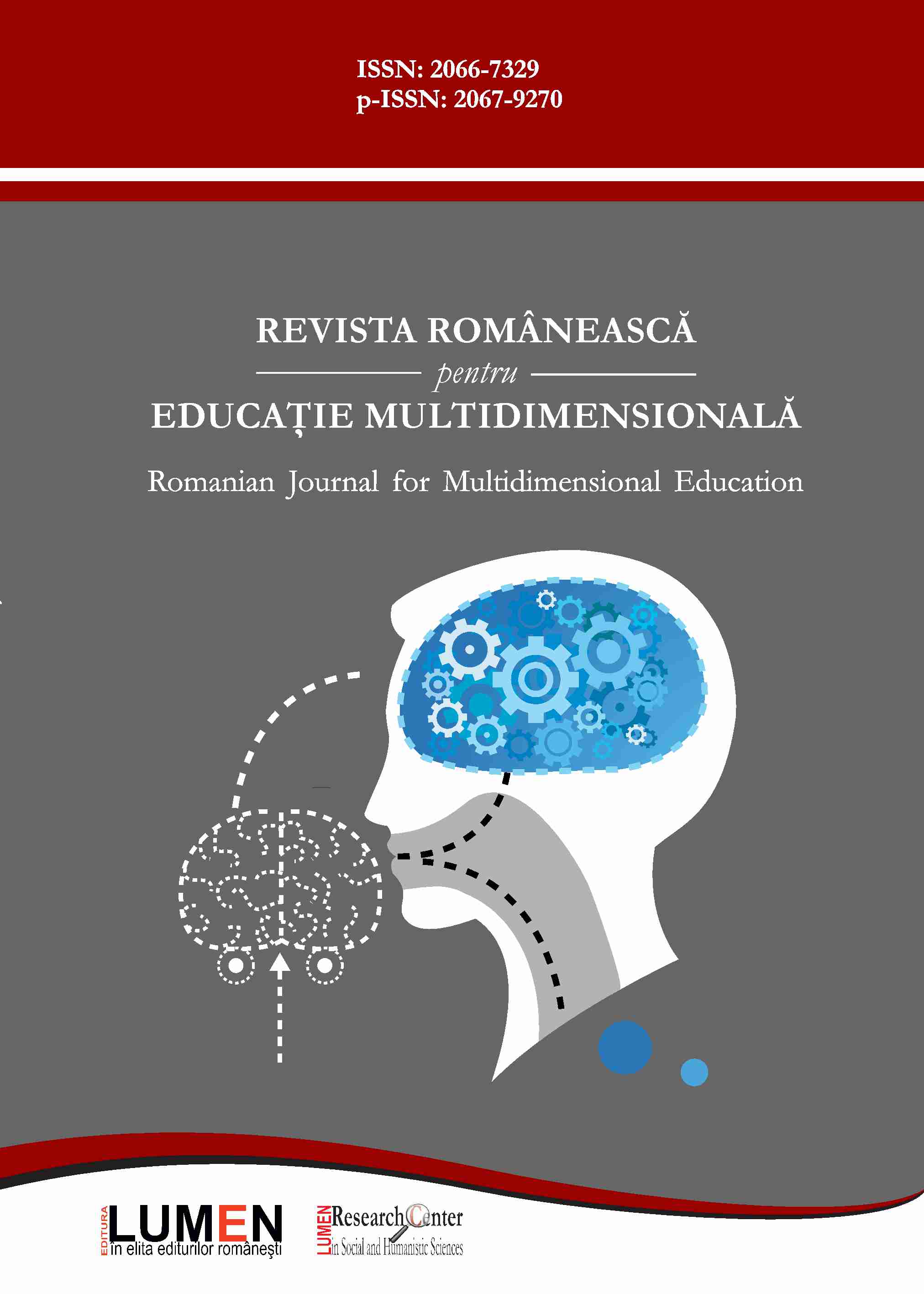
The article provides a fundamental analysis in the detecting of the concept of "prosocial behaviour", relying on the existing studies. It is considered as a set of personality traits that determine a person's tendency to help others and willingness to benefit others and society. The structure of prosocial behaviour distinguishes the main components of prosocial behaviour: humanistic attitudes to interaction, empathy (the ability of a person to respond emotionally to the experience of another person), moral behaviour (moral values, moral actions, personal values) and altruism (selfless activity and helping people).The level of altruism, selfishness, empathetic tendencies, prosocial tendencies of student youth, norms of prosocial orientation are recognized as diagnostic indicators of prosocial behaviour.The following research methods are used: theoretical (analysis of scientific sources, generalization of the analysed literature and its systematization, identification of basic principles that the research is based on, formulation of conclusions); empirical and statistical methods.The results of an empirical study showed that teenagers' self-esteem is dominant in comparison to adolescents’, though the level of empathy among youth is proved to be much higher. It has been grounded that the empathy of adolescents, as well as teenagers, increases in situations of support and enhancement of the well-being of others, selflessness and sincerity. It has been confirmed statistically that teenagers giving assistance are characterized by the assessment of cost, loss and reward; however, adolescents are strongly exposed to a higher social responsibility rate.
More...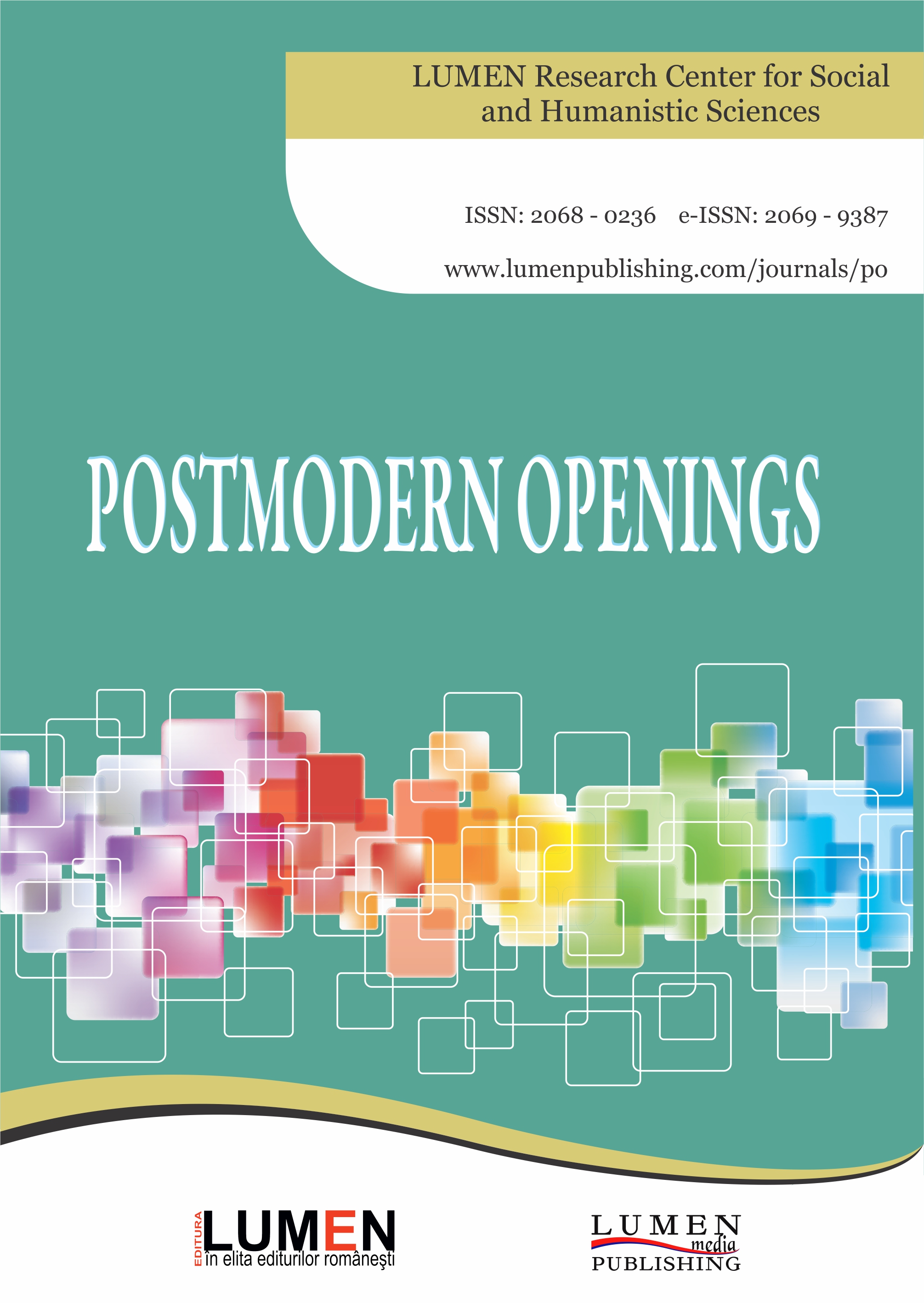
The article analyzes the theoretical foundations that made it possible to identify patterns and explanatory principles of assertive behavior of discursive self-referential identity in the sphere of interpersonal relationships. The process of self-reference is viewed through operations: self-determination, self-recognition, self-creation, self-reproduction, and self-realization. They help to distinguish and describe identity, where discourse is a communicative field of meaning against which the process of creating discursive self-referential identity takes place. The assertive behavior is viewed in the context of life meanings, emphasizing the need to enhance the subjectivity of life, which allows to build such relationships with the outside world that promote creative growth, expanding the degree of freedom and self-development based on responsibility for their feelings, actions and relationships with others acts of social interaction. The conclusion is made about the correspondence of assertive behavior with the content of the category “discursive self-referential identity” as self-representation, constructed in the process of self-reference. Qualitative characteristics of assertive behavior of discursive self-referential identity are revealed. It is noted that assertive behavior forms a model of transparent self-referential identity, which focuses on free, autonomous, transparent self-creation and self-realization in interpersonal communications. An indicator of the model is the need to “be yourself”, which, in the context of the uncertainty and volatility of social reality, allows us to build relationships with the outside world that facilitate the self-realization of the subject.
More...
The article deals with the substantiation of the notion of “aberrational socialization” as a new type of socialization of an individual in modern information society.Based on the analysis of the main provisions of the classical theory of socialization of individuals and taking into account the peculiarities of modern information and psychological warfare aimed at unleashing military conflicts, affecting people’s mass and individual consciousness that causes transformation of a man’s psychic, change of system of values, attitudes, views, thoughts, opinions, activities and behavior, the authors introduce the notion of “aberrational socialization” which they understand as a negative, distorted, misinterpreted, strained socialization, i.e. a formation of an individual with explicit negative and distorted social characteristics under the influence of external factors and aggravated by a person’s individual features.The authors describe the essential characteristics of aberrational socialization of an individual and work out social and psychological mechanisms that can prevent the development of this negative type of socialization in conditions of modern information society.The conclusion is made about the necessity to work out a social and pedagogical content and technologies of the formation of an individual’s psychological resistance, his information and psychological security which have to become a foundation for the transformation of aberrational socialization into a successful socialization and self-realization of a person.
More...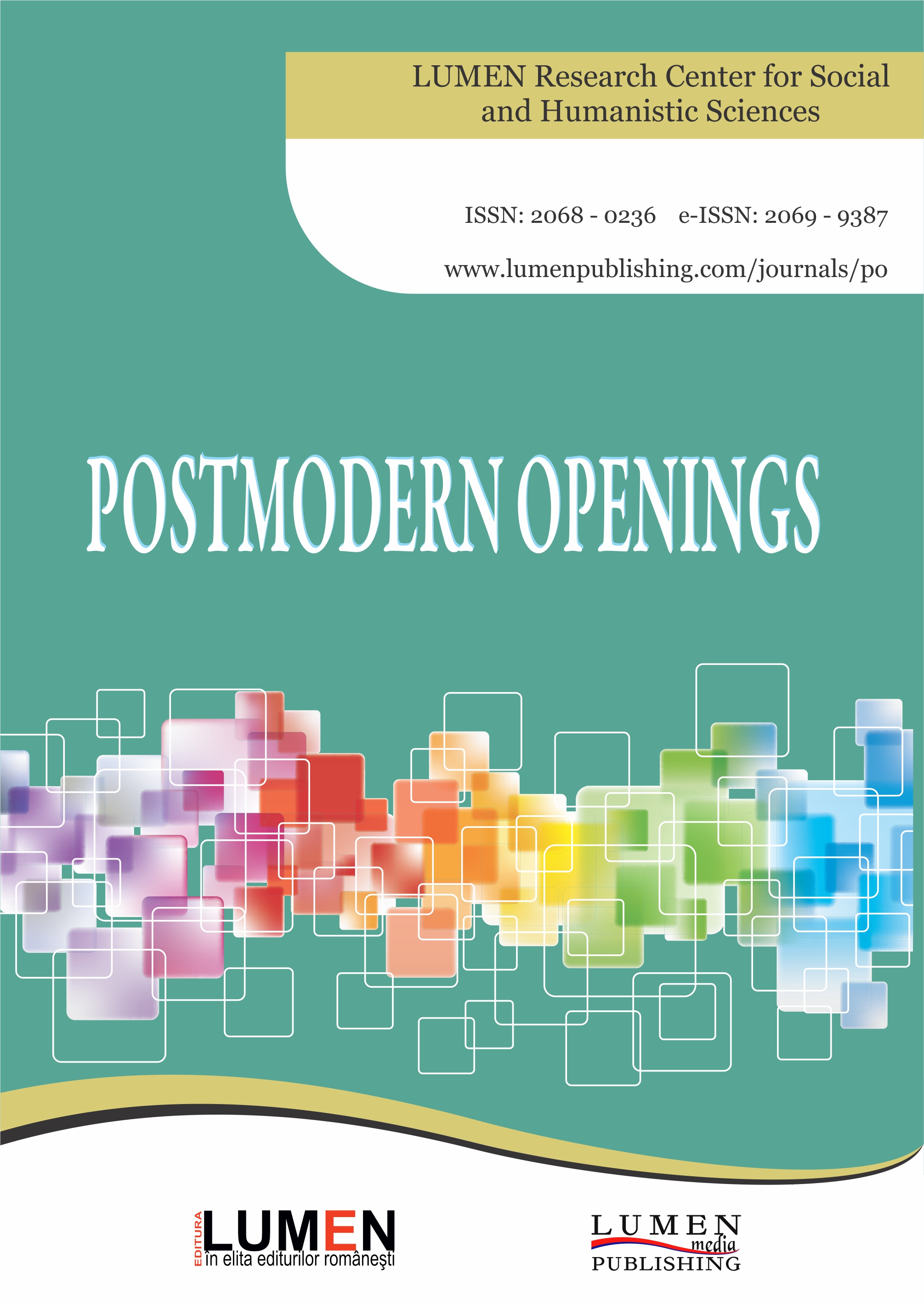
There is a consistent research that shows that adolescents have frequent concerns and worries about their body and self-image. One important factor is the biological and physiological context of development in adolescence, a stage of significant transformation in overall human development. A sample of 185 adolescent girls, aged between 18 and 21 years old, all residing in Constanta County, has been assessed with 4 questionnaires: Garner’s Eating Disorder Inventory (2004), Zuckerman-Kuhlman Personality Questionnaire (2002), The Body Esteem Scale for Adolescents and Adults (Mendelson, Mendelson, & White, 2001), and the Sociocultural Attitudes toward Appearance Scale (Thompson, van den Berg, Roehring, Guarda, & Heinberg, 2004). The purpose of the study was to explore the relationship between the risk of eating disorders and various psychological traits and variables. We examined all variables the questionnaires measured and selected only the statistically confirmed hypotheses (for p<.05). We obtained significant correlations between the risk of eating disorders and ineffectiveness, interpersonal problems, affective problems, excessive control, neuroticism-anxiety, body esteem, the internalization of the perfect athletic body, the internalization of the perfect ideal body and the pressure of having a perfect appearance. Results are discussed with regard to the psychological implications of this study and the need for additional research.
More...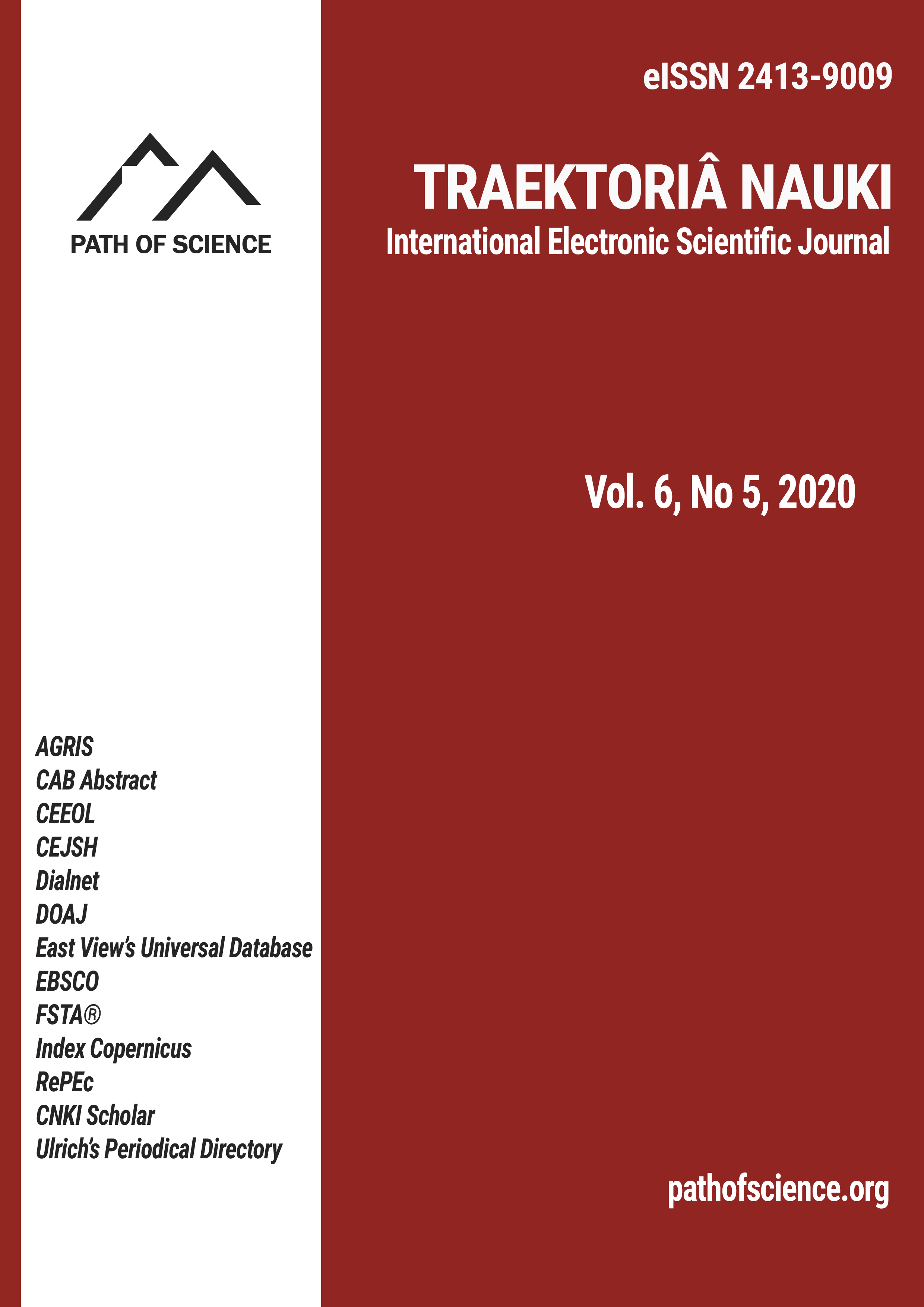
Beauty, traditionally considered one of the highest values along with truth, goodness, and justice, is one of the most ancient and controversial topics in the discourse of the humanity. In the 21st century, it is actively discussed by the representatives of different fields of knowledge. While some researchers consider beauty to be a social construct, others argue that beauty in terms of contemporary beauty ideal is deeply rooted in human nature and is based on our genetic inheritance. Youth is the gold standard of feminine beauty in the modern world, and beauty itself is seen as a social capital and a means of reaching certain privileges. Advertising and beauty industry have a huge impact on women and their self-perception. Unrealistic beauty images lead to the deterioration of women’s psychosomatic health. Interiorization of the modern standards of female beauty as an image of a young girl impedes the psychological development of a woman and leads to disintegration, which disrupts the interconnection of all elements of the psychological system and creates deep contradictions. In the Jungian pantheon of archetypes, a young girl is represented by Kore. In the absence of maturity transformations, Kore’s image, being so attractive to the modern world, indicates an undeveloped part of the personality and can lead to dangerous consequences in the second half of life, such as inhibition of inner growth, inability to live a full life, frustration, deep psychological crisis, loss of meanings. Fixation on Kore’s image makes a woman an ideal object of manipulation and deprives her of ability to think critically. This state of eternal girl is also supported by the men’s unconscious. Only by overcoming the psychological threshold of adulthood, resulting in experience and inner growth, a woman can reveal Kore’s other aspect – the Mistress of the underworld with a great spiritual experience, who has lost her fear of ageing and death. A woman does not lose her beauty in the process of age-related psychological metamorphoses; on the contrary, her beauty becomes multifaceted and reflects all aspects of her true personality. The paper aims to analyze the modern standards of feminine beauty and the psychological consequences of interiorization of these standards through the lens of the Jungian archetype of Kore.
More...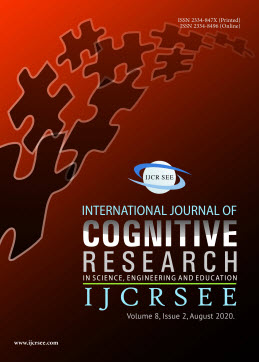
It is well-known that cognitive metaphor can reflect the process of conceptualization of the surrounding world in the human mind. The metaphorical transfer of the source domain’s conceptual features to the target domain shows the essence of the reality perception in the consciousness. This study is focused on the intracultural variation of cognitive metaphors, particularly the phenomenon of the implicit-explicit dispersion in metaphors, dependence of their perception on the occupation, gender, and age of members of a culture, and type of metaphors. Based on conceptual metaphors, associated with the target domain WAR in the Russian culture, the researchers elaborate a novel approach to the analysis of conceptual metaphors, providing full-fledged scrutiny of the reflection of the surrounding realm in the minds of native speakers. The study involved 124 people, some of whom have direct professional experience in the military sphere. The obtained differences in the perception of simulated metaphorical models allow us to talk about intracultural variation of the WAR cognitive metaphor and the significant influence of personal experience on the perception of reality.
More...
The authors made an attempt to describe the problem of developing the concept of risk assessment of deviant online behavior of minors and young adults in social networks. The article looks into the psychological consequences of banalizing of the internet, analysis possibilities for offline and online behavior. Approaches for risk factors assessment of deviant behavior in real life are described: the qualitative (clinical), statistical (actuarial) and structured. The article systemizes the studies of risk factors, vulnerability, and deviant patterns in the context of phenomena such as aggressive, asocial, auto-aggressive, self-mutilating, suicidal, risk-taking and victim online behavior. Approaches and models of online deviant behavior are discussed; an attempt is made to build a structured model of risk assessment of deviant patterns of online behavior in the context of the cultural historical concept. On the basis of theoretical analysis, a hypothetical set of group, interindividual and intraindividual constructs is formulated, the combination of online and offline risk factors produces a model for risk assessment of deviant behavior. The article is written as part of the research project “Developing the profiling model of online behavior of minors and young adults in social networks” which was initiated by the Moscow State University of Psychology and Education.
More...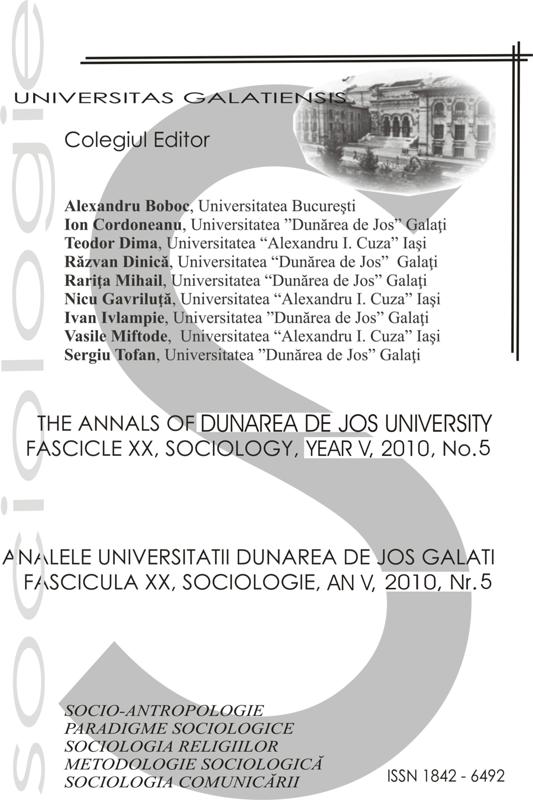
The adolescence is the stage when the process of personality development is finished passing to the future adulthood personality. The emotional and motivational development are not separated from the social, cognitive, moral and other personality development processes. The adolescence is the stage of the self-determination and for the choice of the professional way. The adolescent is cognitively able to participate in abstract thinking, searching for independence, becoming more autonomous, achieving more social roles and statuses and accomplishing more and more responsabilities (on the professional, marital, social, cultural levels).
More...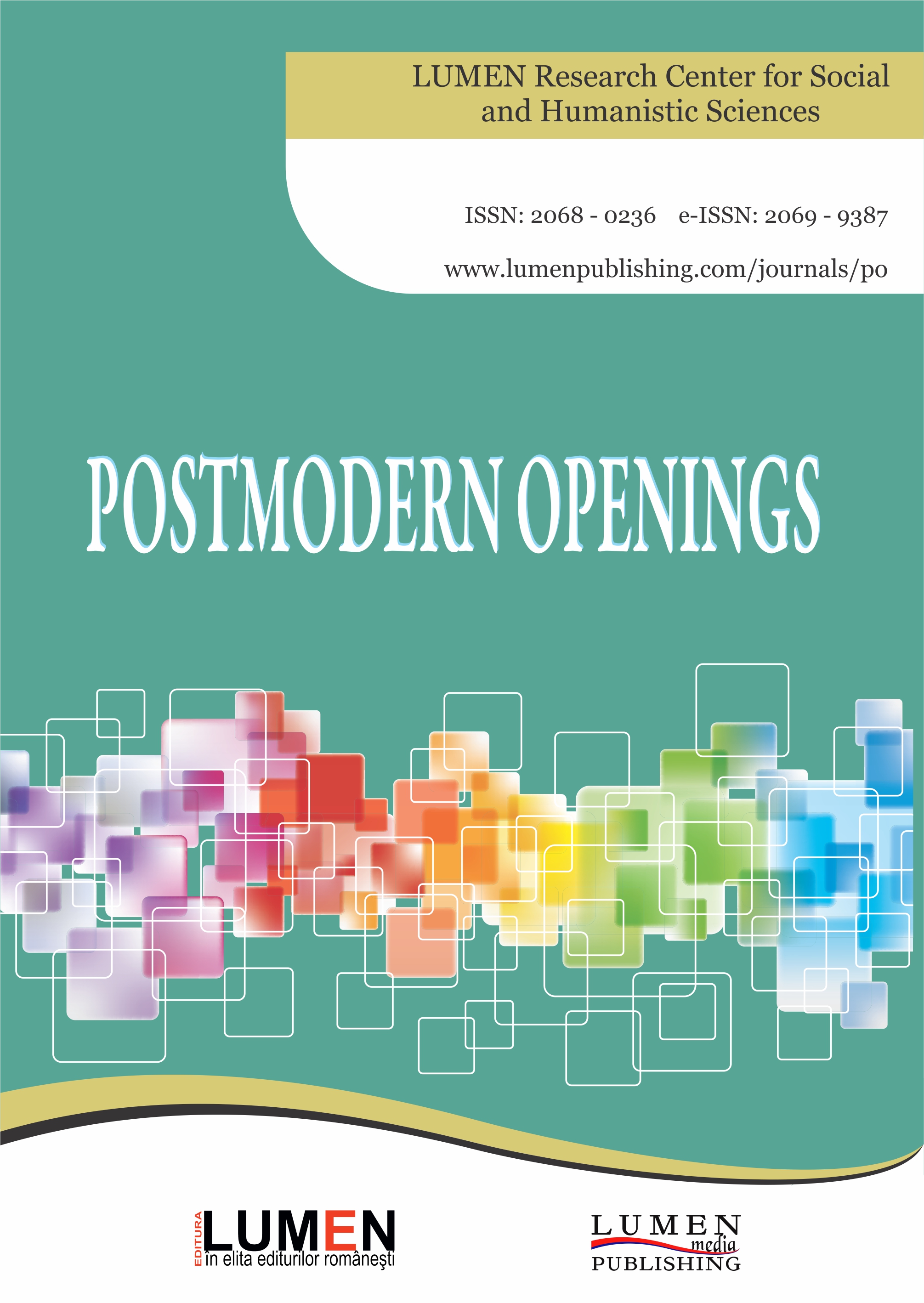
The purpose of the study is a theoretical substantiation and empirical study of the psychological content parameters of the relationship between perfectionism and feelings of loneliness in youth. A new view of modern reality with its constant changes and increased requirements for the functioning of the individual in society has been substantiated. It is noted that such a view provokes the mass formation and spread of perfectionism and loneliness. It is noted that every day more and more people, especially young people, suffer from the imperfections of this world and the feeling of isolation from others. It has been established that socially conditioned perfectionism, concern for mistakes, doubts about one’s own actions and self-criticism have a positive significant connection with the feeling of loneliness in youth (p<.01). However, rigid perfectionism and self-centered perfectionism are inversely related to feelings of loneliness. It was found that young men are largely prone to self-centered perfectionism (p<.01). A pronounced high level of loneliness was observed in n=18 subjects. Attention has been drawn to the fact that doubts about one’s own actions and concern for mistakes inevitably provoke feelings of loneliness. Emphasis has been placed on important areas of actualization of empirical results in order to develop constructive perfectionism. It has been noted that the results obtained should be operationalized in educational and professional training of students-psychologists.
More...
Uncertainty and instability haunt us every day in today’s new reality. The purpose is a theoretical justification and empirical study of the hardiness of the personality in critical conditions of life. Psychodiagnostic complex of hardiness is indicated as a factor of personality adaptation. High average and high levels of hardiness are characteristics of an independently developed personality with a high ability to adapt. It has been established that the average level of hardiness contributes to the optimal experience of situations of uncertainty and involves a person’s choice of coping strategies to counteract the new difficulties in professional and personal life. It has been substantiated that respondents who have high rates of hardiness have a higher level of adaptation efficiency. It has been stated that “risk acceptance” as the component of hardiness of participants of the “Work and Travel” program is more pronounced than in the respondents of other samples (t = -1.54). It has been proved that empirical research of semantic psychological parameters of personality hardiness in critical conditions of life allowed to draw significant conclusions. It is noted that the results of the study need to be operationalized in training, educational and developmental and psycho-correctional practices. It is emphasized that the obtained empirical results should be used in the training of applicants for psychological specialties.
More...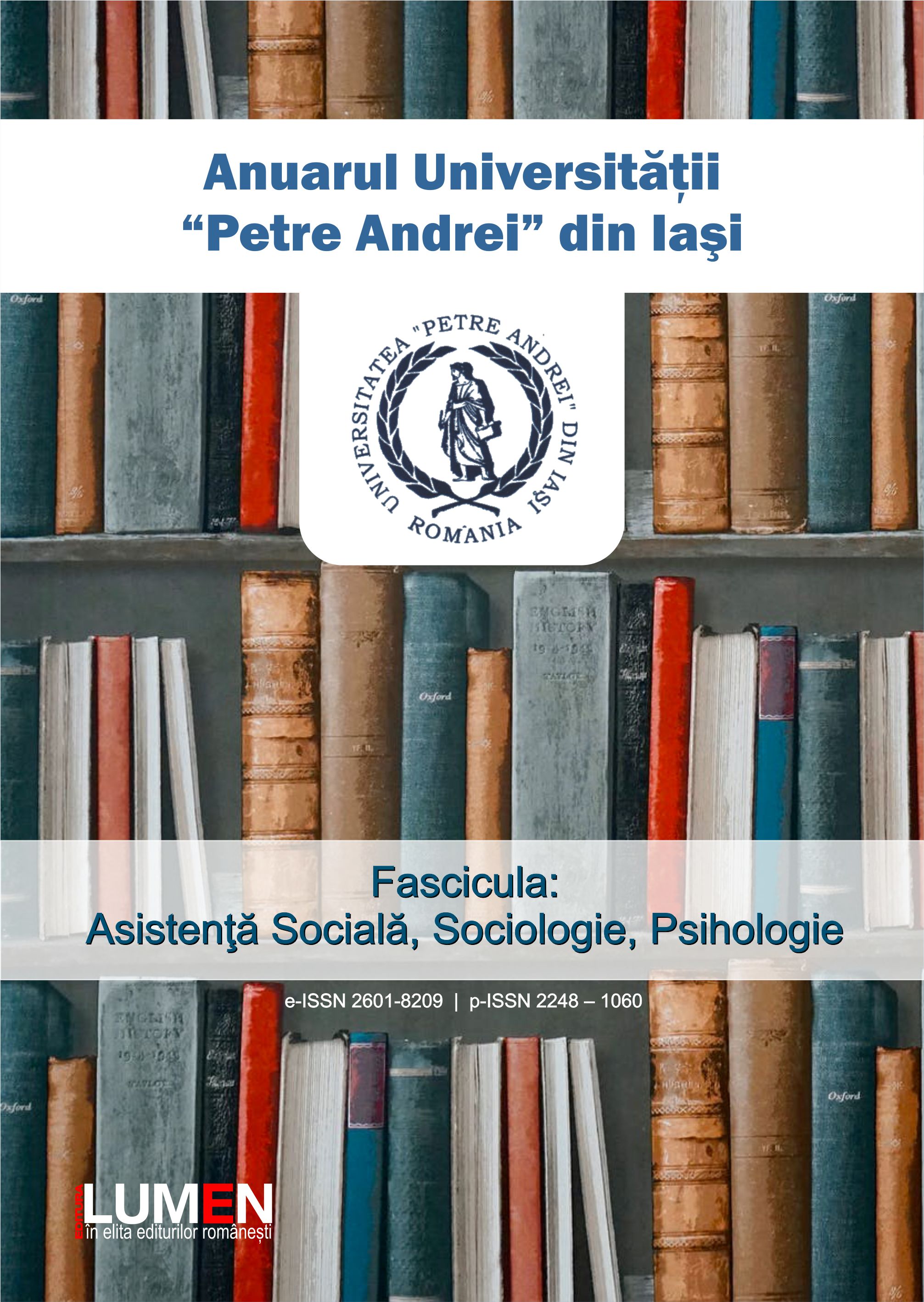
This article presents the synthesis of a research aimed to identify the relevance of emotional intelligence and attitude towards work in relation to the professional integration of people with disabilities. We analyzed the employment status in the labor market and the education level in order to diagnose the extent to which these two factors can increase the degree of insertion. As a result of the statistical analysis, both in terms of emotional intelligence and attitude towards work, we found that there are no significant differences between the dependent variables. In this context, we believe that all people with disabilities have an equal chance at a professional life and to integrate into society. Education for self-knowledge, the development of professional and social skills, as well as the realization of individualized programs of professional integration are a necessity for people with disabilities.
More...
Psychology seeks to explain human behavior and how to interpret the human mind through four fundamental components of work, as follows: Subjective emotional feelings; Cognitive aspects (thinking, intelligence, attention, memory - as measurable dimensions); Behavioral aspects; Psychobiological elements (physical, bodily changes generated by psychological factors (David, 2006).Studies and research in the field (Robu, 2017) also indicate a very general classification of the skills available to man throughout his stages of psychological development, respectively cognitive skills and noncognitive skills. The much studied stages of the child's development as well as the other stages of development, although abundant in information, do not constitute a closed chapter, and the development issue still maintains the current controversy between the degree of contribution given by heredity versus environment, simultaneously with a relative academic consensus generated by the interaction between them.
More...
This paper presents the difference between the so-called normal lying and pathological lying. Pathological lying is a fascinating topic, still lacking a professional consensus on etiology, treatment and prognosis. The paper explores some of the possible psychological mechanisms underlying pathological lying and considers the forensics significance of normal versus pathological lying. The relationship between pathological lying and mental disorders is also discussed. The paper suggests that lying should be considered as a heterogeneous and multidimensional behavioral model. The paper also highlights how important it is to assess the patient’s control over the lie,the role attributted to lying, the acknowledgement and awareness of the lieby the patient, and the effect of the lie on their daily routine.
More...
This study offers a perspective upon the main directions of interpreting the concept of personal development, starting with hedonistic approach, followed by humanistic approach, then by a different meaning - satisfaction with life. Significant studies upon the concept are presented and also their implications upon mental health.
More...